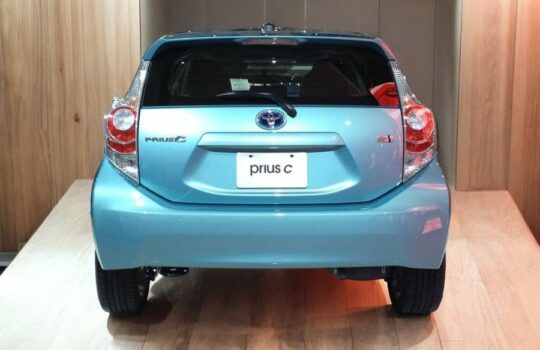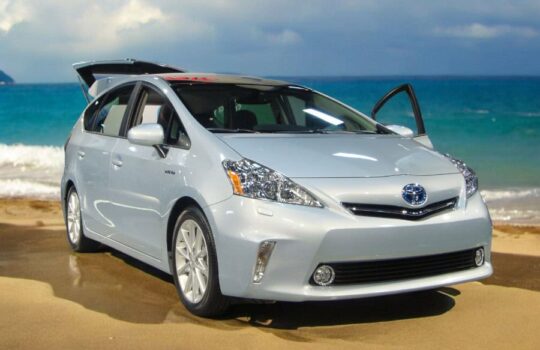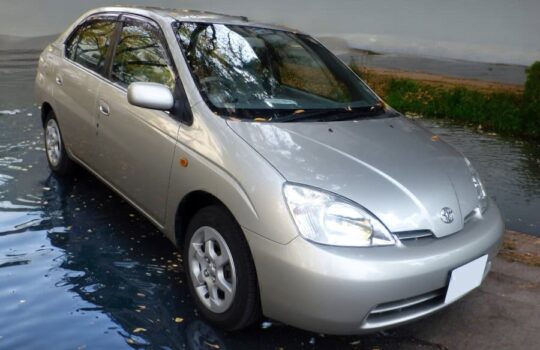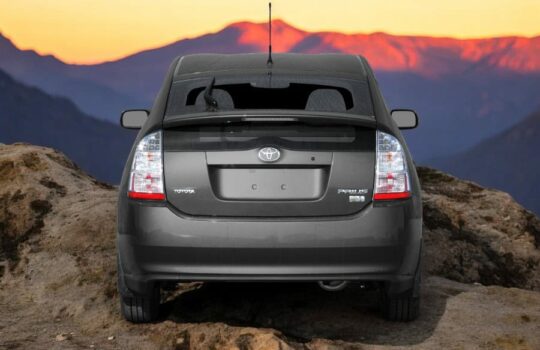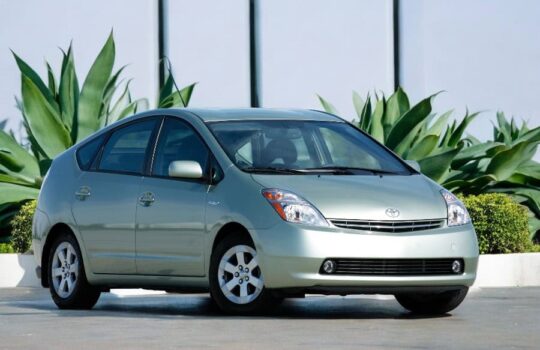How to Replace a Prius Car Battery

The Prius hybrid car is an economical and environmentally friendly vehicle. It helps drivers save gas while decreasing their carbon footprint. Unfortunately, as these cars age, their battery packs require replacement.
Older Prius models used nickel metal hydride batteries, while more modern models used lithium-ion batteries. This article will outline the costs and advantages of upgrading to lithium battery packs.
Cost
The Toyota Prius hybrid car battery is integral to its hybrid drive system. The battery plays a pivotal role in providing remarkable fuel efficiency and lower emissions by powering its electric motor during low-speed driving and helping its gas engine accelerate during acceleration or higher speeds where conventional gasoline motors would typically be less effective.
The Prius battery comprises 168 nickel-metal-hydride cells that produce up to 1.6 kilowatt-hours of energy. It is located in the rear seat area and is easily accessible after removing the rear seats. When stopped or neutral, the electric motor and gas engine work unison to recharge it, meaning its regular replacement is essential to keeping its performance as promised.
As replacing the battery of a Toyota Prius can be expensive, many users are seeking ways to cut costs. Refurbished batteries are available for less than $1,500 and typically come with warranties comparable to new batteries; additionally, recycling can often offer significant savings without impacting performance.
Another option for upgrading the current NiMH battery with lithium upgrades is replacing it with one from lithium upgraders, although this project is more complex. Jack, an owner of a 2006 Prius, who documented the process on YouTube, is an example of someone who successfully made this change. Although time and work are required for this upgrade process, Jack found it well worth his while!
Lithium upgrades can save money and increase fuel economy and performance. They are also lighter and more energy-dense than NiMH batteries, extending usage longer. Furthermore, lithium packs are less susceptible to heat build-up and corrosion issues.
Lithium upgrades may not provide a permanent solution, but they offer an effective alternative to NiMH batteries. One important thing to remember when considering lithium upgrade repairs is that this temporary repair doesn’t guarantee that another cell won’t fail at some point; other modules may eventually begin failing. Therefore, it is vitally important that regular monitoring with Dr. Prius or Torque App is conducted to identify issues before they arise.
Life Expectancy
The Toyota Prius is an eco-friendly, fuel-efficient hybrid vehicle with a sleek design and futuristic appearance. Like all vehicles, it will eventually require a new battery pack replacement. Toyota claims that a hybrid battery should last 8-10 years, depending on factors like distance driven, environmental conditions, and driving habits.
Prius batteries are composed of nickel metal hydride high-voltage cells. As these will need replacing every three to five years, it’s advisable to check their health status with an authorized service provider before purchasing one for replacement purposes and be familiar with any indicators of an unhealthily performing battery.
An unhealthy hybrid battery may exhibit signs of overheating or unsteady acceleration. If this is the case for your car, replacing its batteries as soon as possible is imperative; otherwise, it will run out of power quickly and require turning off and restarting to restart it again.
Hybrid vehicles use two batteries, one to power the electric motor and another for computers. While hybrid car owners typically need to replace the lower-voltage battery every 3 – 5 years, high-voltage batteries often last over 100,000 miles before needing replacement—much longer than what could be expected from traditional car batteries.
One key factor affecting hybrid battery longevity is how often it’s used. Drivers who spend long stretches on highways will experience shorter lifespans than those who commute daily over similar distances.
Maintaining your battery by having regular checks done can significantly extend its life. Battery technicians can detect potential issues before they become more significant problems, thus saving on repairs and costly maintenance later.
Unevenly matched batteries will degrade more rapidly. A typical hybrid battery contains 28 individual cells capable of holding 6500 mah of energy; over time, these may drop as low as 1500 mah; however, an experienced technician can help determine the ideal pack for your vehicle.
Safety
Although hybrid car batteries contain voltage that could cause electrocution, many safety precautions have been implemented to avoid this. First and foremost, the battery should be placed in an insulated box behind the rear passenger seat to protect it from the vehicle’s metal components; additionally, cables running from it to the motor are insulated and clearly labeled. These measures will keep drivers, passengers, and rescue workers responding to an accident safe.
Priuses differ from traditional gasoline-powered cars in that they utilize a 1.3 kWh NiMH battery pack to power the electric motor and other electrical components of the car while also being charged via electricity from its gas engine as the car moves – meaning that as long as the car remains moving, its batteries won’t wholly discharge.
However, when left parked for extended periods, its batteries will gradually drain due to electrical charges used by security systems and accessories such as stereos or monitors. While these features do not consume enough electricity to drain them out completely, this action could still severely reduce their lifespan.
Therefore, it’s vitally important to monitor your battery health indicator regularly. The indicator will let you know when your battery’s power begins dwindling and needs recharging; additionally, low levels will trigger dashboard warning lights.
The Prius’ gas engine kicks in at high speeds to save energy. A smart power-split transmission switches from the electric motor to the gas engine before batteries reach critical low power levels; during this transitional stage, energy from the gas engine is drawn and stored in the battery pack.
While aftermarket batteries may work for your Prius, OEM batteries offer greater convenience. They have been specifically tailored for its requirements and, unlike aftermarket replacements, come with warranties.
Installation
If your Toyota Prius’ battery is leaking or no longer holding a charge, replacing it quickly and efficiently is no problem. Numerous stores sell replacement hybrid batteries at reasonable prices – you might even get lucky and score a great deal by shopping around! However, before making this investment, ensure your vehicle is still under warranty; for example, if purchased through a dealership, it could carry up to a 10-year/150,000-mile coverage on its hybrid battery!
The battery in a Toyota Prius car powers all of its electric systems, such as interior lights and the radio. Additionally, it reduces gas consumption. However, many are confused about how it works, and some even believe swapping batteries between hybrid cars may be dangerous.
Remember that a Prius battery differs significantly from standard car batteries and should not be treated as such. There may be several reasons for its distinction, and it is vitally important that you understand its operation before switching it out or installing another one.
A Prius battery consists of several individual cells connected by link cables to form modules offering 7.2v, which are then connected to power the car. As soon as one module begins to fail, its voltage decreases, and warning lights appear on the car’s dashboard.
Warning signs should alert drivers to battery issues, such as low battery charge or overheated conditions. However, it’s essential not to disregard these signals as they could indicate severe electrical system problems. Any warning sign should never be ignored; instead, it should be taken to a certified mechanic for service immediately.
The Prius hybrid battery is essential to its hybrid drive and should be replaced immediately. When its functionality falters, it won’t be able to recharge itself or use power recaptured through regenerative braking. Furthermore, its failure would render gas and electric modes nonfunctional, with top cruising speeds prompting engines to shut off to conserve fuel while prolonging battery life at lower cruising speeds; at lower cruising speeds, however, the engine continues to draw energy from it, and power the electric motor instead.


